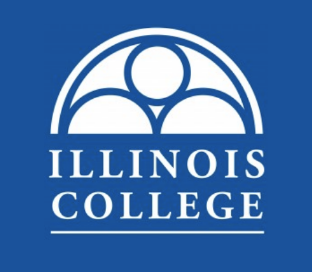Courses in Global Studies
GB 101 Introduction to Global Studies (4)
An interdisciplinary course that examines humanitarian, economic, political, social, cultural, and ecological issues from a global perspective. Highlights the contributions that history, geography, anthropology, political science, economics, and other disciplines make to the field of Global Studies.
GB 105 Languages and Their Place in the World (4)
This core course will explore the essential role played by language in the liberal arts, in the professional world, and in international contexts. In addition, students will examine the complex, often undefined relationship between language and culture, as well as strategies for learning the components of speaking, listening, writing, and reading in a foreign language. We will investigate a variety of topics which are drawn from the fields of sociolinguistics, literary and cultural studies etc. The course will begin with a general overview of what constitutes language. We will examine
the different proposed hypotheses which attempt to account for the nature of the relationship between language and culture. The remainder of the course will cover a variety of topics which explore language in its social context. Some questions that we will consider include: How is language used to create and maintain social institutions and rituals? How do we use language to create different personae? How is language used by people of different genders, ethnicities, and social classes? How are social and linguistic roles acquired by children? Open to all students; no specific language prerequisite.
GB 115 Rise from Ruins: Japan and Germany after 1945 (4)
This course focuses on the postwar reconstruction of the two primary Axis nations after their defeat by the Allies in the Second World War, examining how each nation has dealt with the political, social, ethical and cultural consequences of the war.
GB 120 Exploring Japanese Deep Culture (4)
This course explores Japanese culture from the perspective of Deep Culture, focusing on the values and beliefs that are not superficially apparent. We will examine cultural artifacts and practices going back over a thousand years, including theater (like noh, kabuki, and bunraku), tea ceremony, and kibyoshi. We then examine some of the contemporary issues such as food, social issues, and education from the Deep Culture perspective.
GB 121 Exploring Japan through JPOP (4)
This course explores the popular culture of Japan, specifically anime, manga, film, TV shows, cuisine, fashion, literature, and music. We begin the semester by defining what popular culture is in the first place. Then we analyze and discuss the primary and secondary sources during the rest of the semester. What do these artifacts of Japanese popular culture tell us about the people and society of Japan?
GB 131 Introduction to Caribbean Studies (4)
This course introduces students to the interdisciplinary field of Caribbean Studies, providing an understanding of the concepts that define the region within the framework of its society, history, and culture. Students will examine issues pertinent to the unique physical, political, environmental, and socio-economic challenges confronting the area. They will study literary, historical, and political primary and secondary sources, including various forms of art from Pan-Caribbean cultures, emphasizing the Francophone, Hispanophone, and Anglophone Caribbean and its diaspora. The course aims to develop critical thinking about the region in terms of its origin, geography, common historical experiences, cultural identities, the mixture, mélange or mestizaje of diverse ethnic and racial groups, and its ongoing struggle for sovereignty and survival seen from the pre-colonial and colonial period to today’s 21st-century natural/unnatural disasters. (Pending approval.)
GB 150 The Culture and History of Spain (4)
The Spanish world is studied in its historical and cultural context.
GB 230 The Caribbean and the African Diaspora (4)
The Caribbean has longstanding connections to the African continent through the African diaspora – the displacement of African peoples throughout the world. These connections began with the arrival of enslaved Africans in the Western hemisphere. Since that time, the Caribbean and Africa have shared much in terms of culture, languages, identities, race, social experiences, and political projects. This course will look at the historical development of the relationship between the two regions, giving students a better understanding of both the Caribbean and Africa, of the dispersal of Africans throughout the globe, and of the social and political importance of global exchanges between regions that have differences, but also similarities.
GB 231 Puerto Rican Culture & History (4)
This course introduces students to the social-political realities in Puerto Rico and its colonial relationship with the United States. September 20th, 2017, has marked a drastic change in the history and culture of the island. When Hurricane María struck the country, a more serious situation was unveiled. This course will focus on the colonial historical and economical context of Puerto Rico, including the debt crisis, the question of sovereignty, its infrastructure and the aftermath of the hurricanes of 2017. The course aims to give a concise view to the social, political, historical and cultural paradigms in which Puerto Rican Studies are based. This course includes a required service-learning component in Puerto Rico taking place during Spring Break.
GB 235 Hispanic Caribbean Literature (4)
This course examines the rhetoric of literary genres within the framework of Hispanic Caribbean intellectual history and culture. It focuses on the role of metaphors in the construction of Caribbean identity representations in essays, poetry, short stories, novels and plays from the 19th
to the 21st centuries. Regarding the Hispanic Caribbean national interpretations, this course focuses on analyzing different manifestations, problems, origins, developments, and implications. In particular, students will study literature, history, politics, art, and music components from the cultures of Cuba, Dominican Republic and Puerto Rico. Taught in Spanish.
GB 251 Torture in Spain and Latin America (4)
From the Inquisition to 20th Century dictatorships, in this course explores the role that torture has played in the history of Spain and Latin America. It examines the perspectives of both the torturers and the tortured through autobiographical accounts, official government documents, short stories, plays and novels.
GB 255 Spain’s Textual Heritage (4)
Take on topics such as the multiple languages of Spain, race, family and gender roles, religion, and empire in texts both literary and non-literary (e.g., painting, architecture, music) from medieval and early modern Spain. What is their impact on the world today? Taught in English. Students in the “Spanish” concentration will complete assignments in Spanish.
GB 256 Cervantes and Don Quixote (4)
Have you heard term “quixotic” or the phrase “tilting at windmills”? Don Quixote has shaped cultural productions for more than 400 years (think: R2-D2 and C-3PO, the Lone Ranger, and so many others). In this course you will embark on a guided tour through (the English translation of) this bestselling book and learn to spot new iterations of the knight and his squire in the presentday, while you analyze their significance in early modern Spain. Taught in English. Students in the “Spanish” concentration will complete assignments in Spanish.
GB 267, 367, 467 Research Add-On Course in French, German, Japanese or Spanish (1, 1, 1)
Students enrolled in a course outside the Department of Global Studies that involves a major research project may earn credit for conducting research in French, German, Japanese or Spanish. The research should be related to a major paper and/or presentation in the other discipline. A student who wishes to conduct research for a project in another field using language sources will submit a credit request to both the professor of the research related course and to the Chair of the Department of Global Studies. The course level will be determined upon consultation with the language supervisor and the Chair of the Department of Global Studies.
GB 461, 462 Independent Study in Global Studies (1 - 4)
Independent reading or study in an area of particular interest to the student engaged in Global Studies. The specifics of each project, which may be interdisciplinary, are planned in consultation with the supervising professor(s). May be repeated with different content.
GB 463, 464 Internship in Global Studies (1 - 4)
GB 465, 466 Independent Research in Global Studies (1 - 4)
GB 480 Honors Thesis in Global Studies (2)
An honors thesis based on extensive research conducted abroad or at intercultural domestic sites, through authentic cultural documents, and, if appropriate, in foreign language(s). Students can take this course in the second semester of their senior year. The thesis will be defended orally (in English) at a public presentation open to the entire Illinois College community. The written thesis can be completed in English or in a second language, in consultation with the supervising professor(s). Prerequisite: consent of the professor(s).


